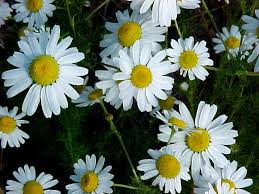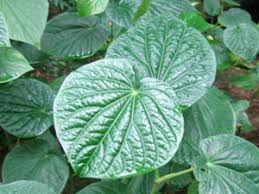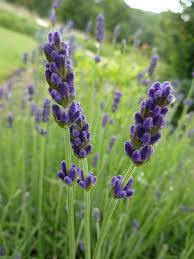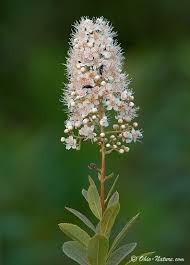 Herbal- Herbal Remedies For Anxiety
Herbal- Herbal Remedies For Anxiety
Anxiety disorders are two basic forms. The chronic form involves a recurring feeling of apprehension and anxiety accompanied by physical symptoms mild. Herbs can treat anxiety and anxiety-related symptoms, such as depression and insomnia. Natural remedies for anxiety have traditionally included the following ...

Natural herbs for anxiety and stress:
 Ashwagandha:
Ashwagandha:
Ashwagandha has been used in India for thousands of years in Ayurveda (ancient) medicine as an anti-anxiety medication. The chemical analysis shows Ashwaganda containing compounds considered to have anti-stress properties.
Ashwagandha (asgandh), an indium exotic has remarkable anti-stress properties similar to those of potent drugs used for treating depression and anxiety. Besides its excellent protective effects on the nervous system, ashwagandha may be a promising alternative for the treatment of a variety of degenerative diseases such as Alzheimer's and Parkinson's. Ashwagandha has powerful antioxidant properties that seek and destroy free radicals that have been implicated in aging and many disease states. Even more remarkable, the emerging evidence suggests that ashwagandha has anti-cancer benefits as well.
In a published study, was given at a dose of 40 ml per day in 30 patients with panic disorder for a month. The study concluded that most of the symptoms of anxiety panic attacks and phobias were greatly relieved.
Another assay U.S. psychiatrists have found it useful in the treatment of, manic depressive state of alcoholic paranoia and schizophrenia. He was given between meals for 60 days at a dose of 4 capsules. one day.
 Catnip:
Catnip:
This herb has been a popular folk medicine for the treatment of muscle tension, stress, nausea, headache and insomnia. All these are also symptoms of anxiety so now is used for patients who suffer from this debilitating problem. Catnip has a sedative effect that helps calm patients anxious and stressed, and gives them some relief from their symptoms. Mint plant is happy for cats, rolling in and rub your skin and makes them happy. But catnip is also used as herbal medicine to relieve symptoms of anxiety in people.
Calming and sedating effects of catnip that is an ideal treatment for anxiety symptoms of patients, providing relief without side effects.

 Chamomile (Baboona)
Chamomile (Baboona)
Chamomile is a popular dietary supplement for a variety of uses, including sleep disorders, anxiety, digestive disorders, skin infections, scars, colic and diaper rash. German chamomile (Matricaria recutita) is the subject of more scientific, and is available almost everywhere except in England, where Roman chamomile (Chamaemelum nobile) is very popular. North America is the most prepared Manzanilla as a sleep aid herbal tea. In general, not enough reliable scientific research has been done to support one of the many common uses of chamomile.
As an herbal remedy, chamomile tea has been used for centuries to calm nerves and oil was an ingredient in flavors and fragrances business.
 .
.
Improves circulation to the brain, Ginkgo Biloba mood and is often used as a natural antidepressant. Side effects are minimal, but talk to your doctor if you decide to go this route. Ginkgo Biloba has been linked to bleeding problems so you should do your homework before you give it a try.
 Kava (Piper methysticum):
Kava (Piper methysticum):
This herb, a member of the pepper family, grows as a bush in the South Pacific. Captain James Cook, who gave this plant the botanical name of "intoxicating pepper", first discovered kava. It has been used for over 3000 years for its medicinal effects as a sedative, muscle relaxant, diuretic, and as a remedy for nervousness and insomnia
It is one of the most popular options for the treatment of anxiety and insomnia. It is a powerful herb from the South Seas. Used as an alternative to Valium, studies have found that reduces anxiety alike. The advantage is that there are no side effects of addiction with Kava Kava. Note, you knock kava. It acts as a sedative to not take it if you must be alert for any length of time. This is a more powerful alternative if Valerian root is not getting rid of her night of anxiety effectively enough.
 Lavender (Lavandula angustifolia):
Lavender (Lavandula angustifolia):
Lavender may have earned this name because it is frequently used in baths to help purify the body and mind. However, this herb has also been used as a remedy for insomnia and anxiety many ailments to depression and fatigue. Research has confirmed that lavender has relaxing effects, soothing and slightly sedative when inhaled her scent.
Lavenderin ingredient can have the benefits of muscle relaxation. In a preliminary experiment, Japanese researchers have found that lavender essential oil relaxes the vascular smooth muscle. They also discovered a chemical called linalyl acetate as the main ingredient to cause relaxation of vascular smooth muscle of rabbit.
The researchers stimulated the patients dental procedures lavender while waiting in a study of 200 patients. They found that environmental odors of orange and lavender reduce anxiety in a better mood in patients awaiting dental treatment. Using odors is helpful in reducing anxiety in dental patients.
 Sweet Meadow:
Sweet Meadow:
Sweet Meadow relieves pain related to anxiety and stress. You can drink tea or extract of meadowsweet practice as a dietary supplement. People with aspirin sensitivity should avoid using Sweet Prairie. Remember, you should never be used to reduce headache or fever in children, and that can eventually lead to Reye syndrome.
 Passion Flower:
Passion Flower:
Passion flower acts as a non-drowsy, natural sedative that relieves nervousness and panic attacks anxiety intermittent. In fact, it is the vine passion flower has calming effects.
Instead of boring or cause drowsiness, passion flower, feel emotionally balanced. It will give you a feeling hyper, happy or excited. Instead, passion flower cushion your emotions extremes of its range. If you have exaggerated emotions throughout the day (you go very very happy angry or sad), passionflower can be found as a good complement.
St. John's Wort (Hypericum perforatum):
St. John's Wort has long-term treatment of many anxiety disorders. Back medicinal herb St. John s to ancient Greece, where doctors recorded using the plant to treat pain from anxiety, depression and nerves. Today, many people swear using St. John's wort. It is available in natural food stores and places that sell herbs.
The popular herb extracts exert an antidepressant effect by inhibiting the reuptake of serotonin, norepinephrine and dopamine. The dose may vary, but I really need to take it for weeks before results are noticed.
Minor Wort treats depression and anxiety, but may not be able to alleviate severe depression. Always seek medical or psychiatric condition if you suffer from depression, untreated depression can lead to serious illness. St. John's Wort causes photosensitivity, or sensitivity to sunlight in some patients. If you are taking St. John's wort, be sure to use sunscreen or cover with loose clothing away. Even people who usually can be found sunburn and sunburn increases the risk of skin cancer.

